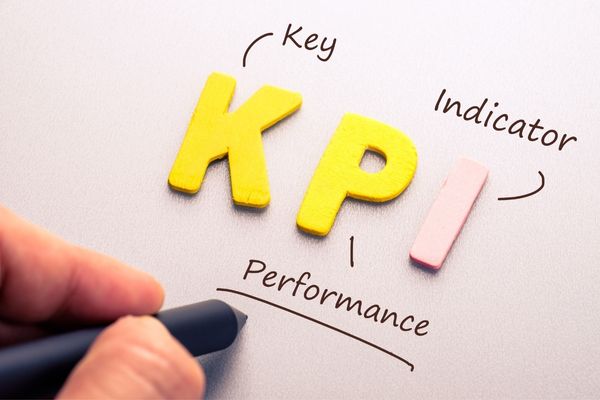15 Small Business Internet Marketing Tips (That Are a Must in 2022!)
If you are reading this article, you are looking for ways to market your small business online and achieve your bottom line – leads and sales.
One thing to keep in mind is that there is no one-size-fits-all approach. You may get results with one technique, and another could be a complete disaster. That’s why you need to have a plan.
Second, you will not achieve your bottom line overnight. So, if you aren’t willing to put in the time and effort necessary, don’t expect results.
Keep reading to learn how to use internet marketing tips to sell your products or services online.
Why is Internet Marketing Important for Your Small Business?
As of this writing, there are over 5 billion people worldwide who use the internet – an equivalent of 63% of the world population.
And the numbers are growing every day.
That’s a LOT of potential customers! It begs the question: why aren’t you already promoting your small business online?
But getting online is not just about the mind-boggling number of internet users. Let’s be brutally honest: most of them will never reach your site anyway.
If you’re targeting everyone, you’re marketing to no one.
Internet marketing is vital for small businesses for several other reasons:
- Interacting with potential customers to learn their needs and wants,
- Reaching a geographically dispersed audience without geographical restrictions,
- Targeting the right audience at the right time to enable tailored marketing,
- Tracking customer engagement and behaviour through online data tools, learning more about what works best and adjusting your campaigns accordingly.
In addition, when done well, digital marketing can help your small business compete with larger competitors.
Internet Marketing Tips for Small Businesses
1. Research and Strategise

Small businesses should research their market and strategise before starting a marketing campaign. By doing this, they can avoid making costly mistakes that could harm their reputation and bottom line.
One of the critical steps in any marketing campaign is research.
Before spending a single penny on advertising, make sure you understand your target audience and what they want. Knowing this will help you create relevant and exciting content for your customers.
Furthermore, it’s crucial to have a plan before launching a campaign. Ensure you know how much money you want to spend when you want the ads to start running and how long you plan to keep them running. If you don’t have a plan, you may waste your budget on campaigns that no one sees or remembers.
2. Niche Down and Identify Your Audience
A common mistake small business owners make is thinking they need to market to everyone to succeed. That couldn’t be further from the truth.
Why?
Because if you’re targeting everyone, you’re marketing to no one. Instead, focus on a niche that is smaller and more specific. This can help you attract your ideal customers who are actively looking for your product or service.
Creating a niche will not only help you create a steady revenue stream, but it will also help you establish authority in your field.
For instance, if you are in the real estate industry, you can sub-niche by honing on one specific element of real estate, such as luxury homes.
If your target audience can trust your expert advice, they will return to you for answers to their real estate needs instead of your competitors.
Another benefit of niching down is connecting with your customers personally and building loyalty. Loyalty equals recurring customers, and repeat customers equal more sales.
3. Set Your Marketing KPIs

You have done your research, niched down, and identified the group you want to market to. Now what?
You set the KPIs (key performance indicators) you will use to measure the success of your campaigns. These indicators will help you evaluate your return on investment (ROI) for each campaign.
Some of the KPIs you can set include:
- How many leads did the campaign generate?
- What is the CTR (click-through rate)?
- How many sales did the campaign generate?
- What is the conversion rate?
- How many website visitors did the campaign generate?
- What is your total ROI?
The most significant benefits of KPIs are that they help you identify which marketing is working and which is not working and which to invest more money in. They will also help you determine if you need to adjust your campaigns or goals.
4. Establish Your Online Presence with Effective Web Design
Your prospects’ first impression of you and your brand is your website. So, if you want to put your best foot forward, you need an effective web design.
A web credibility study from Stanford says that 75% of users admit to judging a company’s credibility based on the website design.
So, depending on the type of business and industry, your website’s design should emphasise your USP (unique selling point) and target your customers’ pain points and solutions.
When deciding on the web design agency to use, consider factors such as:
- Does the web design agency understand your brand identity?
- Do they have a proven track record of creating effective web designs?
- Do they follow best web design practices?
Your website is the online home of your small business, so its design should be consistent with your brand personality.
5. Create a Google Business Profile Listing

If you are a local business, Google Business Profile is an essential tool you can use to improve your visibility in search results.
Google My Business or GBP is an official Google listing for business pages in Google Maps, allowing businesses to highlight their details, get reviews, and add photos.
According to this study, an average business has been discovered approximately 33 times every day or 1009 times per month. Australia saw higher-than-average results, with 1120 businesses on average per month.
So, if you haven’t claimed your GBP listing yet, do it today and start taking advantage of this FREE marketing tool.
6. Incorporate Email Marketing
Did you know that email marketing has the highest ROI in all of digital?
For every $1 you invest, you will receive $42. It is no wonder marketers keep coming back to it despite the advent and integration of new marketing channels.
Email marketing is inexpensive and enables you to reach your target market regularly. You can send updates, newsletters, information, and blogs to your customers through email. You can also send targeted offers and promotions to people who have shown interest in your products and services.
By segmenting your email list, you can personalise your messages to target customer interests like location, gender, interests, and age.
What’s more, the number of active email users is forecast to reach 4.6 billion in 2025. If you have not yet invested in email marketing for your business, now is the right time.
7. Boost Your Ranking with Search Engine Optimisation

Small businesses can boost their rankings in search engine results pages (SERPs) by investing in search engine optimisation (SEO).
According to a study by Search Engine Land, SEO can increase website traffic by up to 51 percent.
By optimising a website for the search engines, small businesses can increase traffic to their site and improve their chances of being found by potential customers.
Many factors go into search engine optimisation, but some key components include using keyword-rich (but not too rich!) titles, adding detailed descriptions, and including high-quality images.
While it can be expensive to implement complete SEO strategies on a large scale, several accessible and affordable options are available to small businesses.
Book an SEO consultant to get advice that caters to the needs of your business and website.
8. Invest in Ads
While organic traffic is precious, it can be time-consuming to gain traction on a site. While some keywords may rank instantly, others may take weeks or even months.
With this in mind, investing in paid advertisements makes sense. It is a short-term solution that can help drive traffic quickly. Popular options include Google Ads, Facebook Ads, and other forms of pay-per-click advertising.
Although social media ads like Facebook may be tricky because social media users have less buying intent, they can be highly effective with the right targeting strategy, especially for small businesses.
9. Build a Social Media Presence

Speaking of social media, it is impossible to truly achieve a successful internet marketing campaign without integrating social media into your strategy. Social media platforms allow businesses to connect with their customers personally.
In Australia, people spend 1 hour, 46 minutes daily on social media, meaning it is the second most popular activity for Australians after watching television.
You can respond to customers’ queries, provide customer support, and get real-time feedback through social media. You can also post great content to increase brand awareness and generate traffic to your website through social media.
By 2025, the number of social media users worldwide will reach 4.46 billion. This colossal number rise reaffirms the importance of social media for all businesses.
The social aspect is essential to a social media strategy. It allows brands to establish genuine connections with their audiences. This will enable you to build brand loyalty, vital for small businesses.
10. Utilise Content Marketing
You know the cliche; content is king.
Well, it is and always will be. Content is the lifeblood of your brand. It builds trust, credibility, and authority.
Content that is authentic and compelling will keep your customers coming back for more. And if you’re willing to put in the work to create high-quality content, it will pay off in the long run.
A good content marketing strategy will include a mix of blogs, videos, graphics, infographics, podcasts, infographics, whitepapers, or any other type of content that speaks to your audience.
Content marketing can be time-consuming, but professional content marketing agencies can help turn content into leads and increase sales.
11. Leverage Video Marketing
Video is part of content marketing, but its immense potential has not been fully harnessed. Today’s consumers prefer to watch a video rather than read text.
An estimated 72 percent of consumers prefer video to text marketing. This is why small businesses need to invest in video marketing.
By investing in video marketing, you can deliver content more engagingly. For instance, a study revealed that 74 percent of consumers who watched a product’s explainer video subsequently bought it.

Some helpful video content includes testimonials, customer reviews, and product demonstrations. Several platforms and tools exist that you can use to promote your video, including YouTube, Facebook, Twitter, Instagram and (especially) TikTok.
The best part; you don’t have to be a professional video producer to make engaging videos. Tools like Animoto, Wistia, and iMovie are easy to use and can let you create high-quality videos without spending a lot of money.
12. Collaborate with Influencers
The Search Engine Watch says social media influence 71 percent of consumer buying decisions. Therefore, collaborating with influencers is a great way to promote your small business online.
For example, you could work with influencers in your industry to create a video that highlights your products or brand. You can also share endorsements made by influencers relevant to your product.
Working with influencers in your niche opens the possibilities for customer engagement. It also helps you break into a new market, as influencers often have access to consumers that you may not.
13. Encourage (Happy) Customers to Leave Online Reviews
Small businesses can use online reviews to improve their marketing efforts and customer relationships. By encouraging happy customers to leave online reviews, companies can create a positive reputation and attract more business.
There are several ways to encourage happy customers to leave online reviews.
First, make sure your website is easy to navigate and user-friendly. This will help customers find what they’re looking for and encourage them to write a review.
Second, offer customer rewards for writing reviews. This could include free products or services, discounts on future purchases, or even complimentary tickets to a promotional event.
Also, communicate with your customers through online reviews. Reply promptly to any questions or complaints, and thank them for taking the time to write a review.
And lastly, monitor your online reviews regularly and take action if there are any negative comments.
Address any issues quickly and try to resolve them as best you can.
14. Embrace Automation

Many small businesses struggle to keep up with the ever-growing demands of the internet. One way to alleviate this burden is to embrace automation.
By automating tasks, such as sending out email campaigns, tracking website visits, and collecting data from social media accounts, you can free up your time to focus on more critical aspects of your business.
Not only will automation allow you to streamline your work, but it can also improve efficiency and accuracy.
15. Monitor Your Marketing Campaign and Adjust Based on Results
Monitoring your marketing campaign is critical for achieving the desired results. Start by reviewing your marketing campaign metrics regularly.
Based on this analysis, you can determine whether your approach is working effectively. If you discover that your campaign results are not what you expected, you should adjust some of your strategies or tactics.
Here are some tips for monitoring your campaigns:
- Keep track of what keywords are driving traffic to your site. This information can adjust your advertising and other marketing strategies accordingly.
- Check out what keywords rank on search engine results pages (SERPs) for your primary target market. This will indicate the health of your online presence and help you plan future campaigns accordingly.
- Track the number of leads generated through email marketing, social media, or other forms of advertising. This data can determine which channels best promote your business and how much money should go to each route.
The most important thing for small businesses to remember is that internet marketing is a marathon, not a sprint. Constant effort and adjustment will result in better long-term success.
Final Thoughts
Internet marketing is constantly evolving, making it essential to continue honing your skills and taking advantage of new platforms. As a small business owner, it’s important to find marketing strategies that are effective and affordable.
There is no one-size-fits-all approach to succeeding online. Some methods will work well for particular businesses or industries, while others may work better. The key is to experiment and test different options to find what works best for you.
Also, internet marketing success relies on consistency and being able to adapt to changes quickly.







